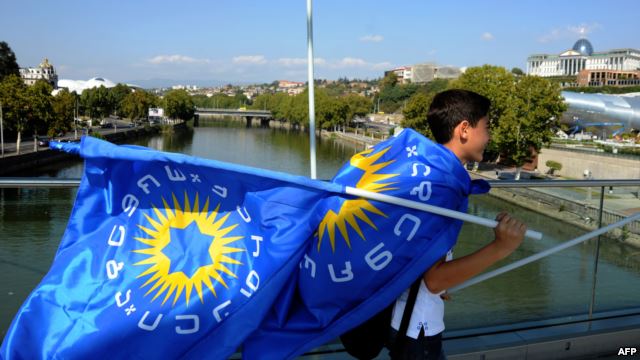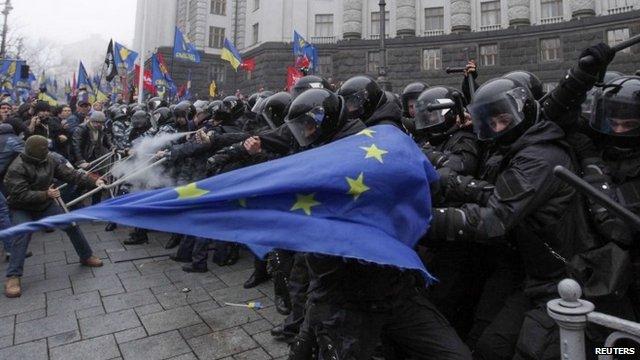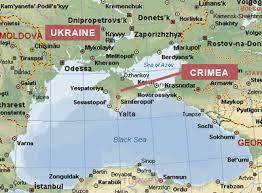Aaron Willschick examines Georgia’s push for a MAP in 2014 as another example of the MAP keeping an aspirant country to NATO on course in their reforms.
From political tensions to full-on war, Georgia has confronted much adversity over the last few years. The Eurasian country has been through many setbacks, most notably the systemic command and control breakdowns that characterized its 2008 war with Russia. Politically speaking, tensions were perhaps at their highest this past fall when many observers became concerned that Mikhail Saakashvili’s defeat and Bidzina Ivanishvili’s victory in the Georgian parliamentary elections would put Georgia back under heavy Russian influence. This, it was thought, would come at the expense of Georgia’s push for democracy and joining the West.
Despite these fears, the Georgian government, led by Ivanishvili, has been proving doubters wrong. Rather than being a Vladimir Putin “clone” as many expected, Ivanishvili has been making necessary reforms to spread democracy and stabilize the government, including drafting legislation to increase its own oversight from parliament and undertaking several reforms in the justice ministry. Perhaps Ivanishvili’s most ambitious goal has been his pursuit of a Membership Action Plan (MAP) in 2014 for Georgia to formally join NATO. When he announced in early May that he intended for Georgia to get a MAP by the end of next year, initial reaction was that Ivanishvili was engaging in wishful thinking similar to that of his political rival, Saakashvili. A NATO MAP had been Saakashvili’s primary initiative, one that seemed to recede over the last few years. But Ivanishvili has thus far gone to great lengths to side with the west and distance Georgia from Russian influence.
[captionpix align=”right” theme=”elegant” width=”350″ height=”500″ imgsrc=”http://www.wespeaknews.com/wp-content/uploads/2012/05/Bidzina-Ivanishvili.jpg” captiontext=”President Ivanishvili also happens to be the wealthiest person in Georgia and one of the richest people in the world.”]
Since coming to power in October, the Georgian Dream coalition government has sought to balance Georgia’s relationship with Russia and embarked on a military-reform program in an effort to reduce the prospect of another war and improve its case for NATO membership. Were it to join NATO today, Georgia’s nearly 1, 600 troops in Afghanistan would make it the sixth largest contributor to the ISAF operation, outranking major NATO states such as France, Spain and Canada. Even though it is a small and developing country, Georgia’s defense spending at 2.9 percent of GDP is nearly a full point higher than the baseline target set by NATO.
In an effort to learn the lessons of the operational failures of the war with Russia, Minister of Defense Irakli Alasania has authorized a study of the war’s operational failures to inform long-term planning. The government has also sought to embrace NATO’s smart defense doctrine. The military is now phasing out its post-Soviet, mixed-conscription force structure in favour of an all-professional, Western trained active force supported by a more robust, tri-level reserve system. These reforms have been well-noticed by Western institutions, as EU foreign affairs chief Catherine Ashton has requested that Georgia consider participating in EU-led stabilization operations in Mali. The West has also been taking notice of the democratic reforms that the Georgian government has undertaken, including Alasania creating transparency working groups in the defense ministry and engaging Transparency International Georgia to provide an interim report on progress. The once uncertain divisions between the defense and interior ministries are now being clarified and firmly delineated to prevent abuse.
Despite the immense progress in reforms, it is important that Georgian policymakers stay the course and not solely focus on defense spending at the expense of democracy. Georgia’s democratic standing remains tenuous at best and lots of work needs to be done if it is to join the Central European countries as recent success stories of democratization. It is still susceptible to regional influences, most notably Putin’s Russia which puts political stability among the most significant priorities. After all, a stable, democratic and human rights observing political structure is ultimately what will help Georgia in gaining NATO accession. It is important that NATO take a long-term approach to Georgia. Its relations with Russia are still complicated and the last thing NATO needs is a problem state. It is too early to say whether a MAP is a realistic goal for 2014, but the depth of current reforms point towards Georgia becoming an active and productive NATO member in the not too distant future.




